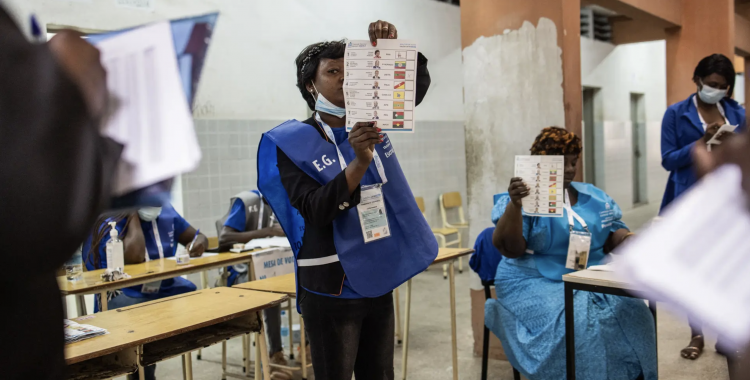According to data from the National Electoral Commission (CNE), when 97.03 percent of the votes are counted, the MPLA (in power since 1975) obtained 3,162,801 votes, one million less than in 2017, when it obtained 4,115,302 votes.
UNITA had a great rise, electing deputies in 17 of the 18 provinces and obtaining a historic victory in Luanda, the largest in the country, obtaining so far 2,727,885 votes while in 2017 it had 1,800,860 favorable ballots.
In addition to this change in voting, there is a record of a lower turnout. Fewer 700,000 Angolans went to the polls in Wednesday's general elections despite the fact that the electoral universe increased by more than 55 percent, from 9.22 million to 14.4 million voters.
In 2022, with a substantially higher electoral roll, there was an abstention of 56 percent when, in 2017, the date of João Lourenço's first election, the abstention was only 23.5 percent.
According to the CNE website, the MPLA continues with 51.07 percent and 124 seats, followed by UNITA with 44.05 percent and 90 seats, with the remaining six elected by three small party forces. With these results, the MPLA has a qualified majority (it had 150 seats) that allowed it to individually approve constitutional changes, for an absolute majority.
In Luanda province, UNITA won almost twice as much as the government party and got 1.23 million votes, 500,000 more than in 2017, while the MPLA, with 650,000 votes, has 360,000 less ballots.
In the rest of the country, UNITA elects deputies in 17 of the 18 provinces (only in Cunene, the MPLA has five provincial elected representatives). In 2022, the black rooster party did not elect deputies in six provinces and in most cases only had one elected, against four in the MPLA.
This time, in half of the provinces, the result was 3-2 in favor of the MPLA (Bengo, Benguela, Bié, Cuanza Norte, Huambo, Luanda Norte, Lunda Sul, Malanje and Uíge), which only obtained four mandates in Cuando Cubango, Kwanza Sul, Huila, Moxico and Namibe.
In Cabinda, UNITA had its biggest victory in the country, winning four seats against one for the MPLA (in the 2017 elections most seats were already held by the opposition) and won Luanda and Zaire with three deputies.
Outside the country, whose votes count only for the national constituency, the MPLA won over UNITA with 50.6 percent of the votes, but the CNE does not discriminate votes by consulate.
With regard to blank and null votes, there were a total of 173,791 cases, half the number in 2017.
In the National Assembly of Angola, the Broad Convergence for the Salvation of Angola - Electoral Coalition (CASA-CE) disappears from the hemicycle after the departure of its leader, Abel Chivukuvuku, to the UNITA lists, where he was running for vice president.
In 2017, CASA-CE had won 16 mandates (with 639,789 votes) and now has only 46,750 bulletins with the cross in the party.
In the smaller parties, the Social Renovation Party (PRS) dropped slightly (70,398 votes against 80,763 in 2017) and retained both seats. The National Liberation Front of Angola (FNLA) rose by four thousand votes, obtaining 65,223 ballots, which allowed it to rise to two seats.
The surprise among the smaller formations was Bela Malaquias' Humanist Party (PHA), which had 63,003 votes and managed to elect two terms in its first electoral race.







